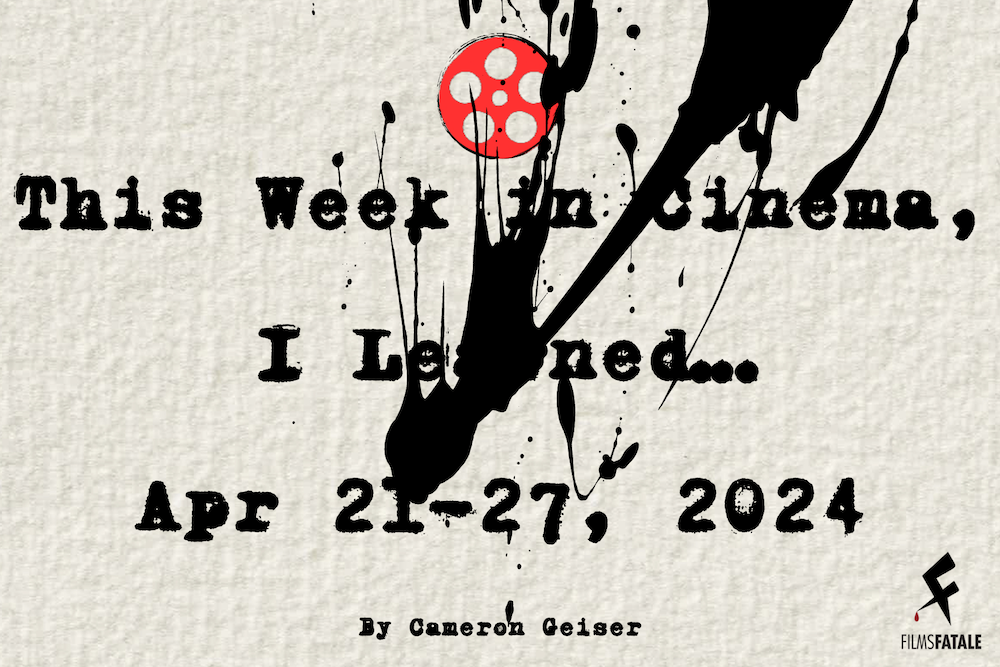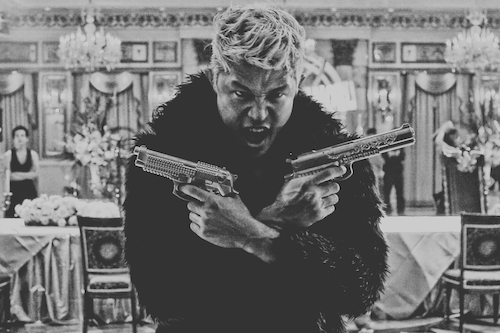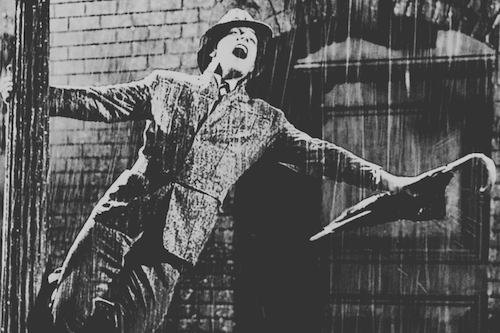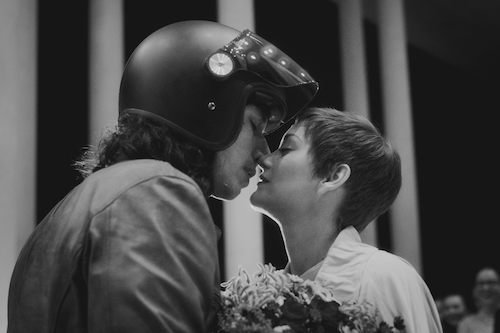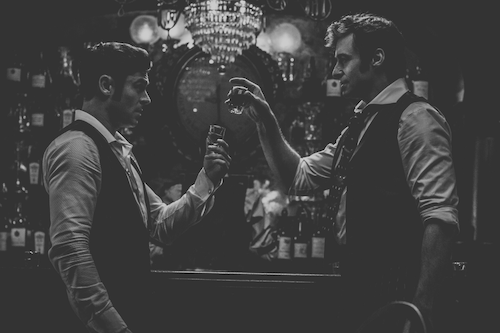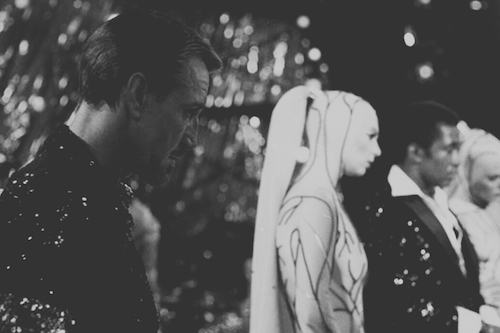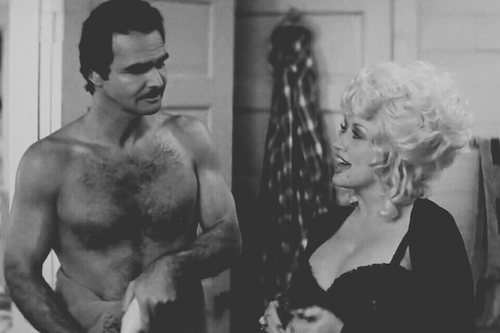This Week in Cinema, I Learned…April 21-27 2024
Written by Cameron Geiser
Welcome to This Week in Cinema, a yearlong film criticism project wherein I will be watching a new film that I haven't seen every single day.
It's the final full week of April and the genre this time around is Musicals! While I didn't necessarily love every film this week I loved the experience of diving into all this song and dance. I kicked off the week with the craziest Musical I've ever seen in Tokyo Tribe, a Japanese hip-hop rap battle of sorts. I tackled a couple of giants in the genre with Singin’ in The Rain and All That Jazz, and Pyaasa (or Thirst), which were all unsurprisingly great. I also threw in a couple of modern musicals in The Greatest Showman and Annette. The final film is a throwback to the 70s (even though it was released in the early 1980s) with The Best Little Whorehouse in Texas.
So, did I learn anything this week? Well, the most frequent thing that kept popping into my head throughout the week was just how damn complicated filming a musical must be. There are so many moving parts with the choreography, blocking, business, singing, dancing, cinematography- everything has to line up with such precise perfection that I am constantly in awe of the genre. It feels like an overwhelming mountain to surpass creatively, I have great respect for the filmmakers willing to take on any musical, even if I don't much care for the end result in some cases. Just for the record by the way, my favorite musical is La La Land, that one gets me every time. Next week will round out the end of April's Pure Genre theme. Since I didn't have a full week left I opted for a few days of Action films that I wanted to catch up on. Plus we’ll begin May which consists entirely of Kung-Fu and Comedies, so come back for that. I've personally been looking forward to May's theme for months! Enjoy!
April 21st
Tokyo Tribe (2014)
3.5/5
This was the most surprising musical of the week, and what a way to kick off the genre’s dominance for the week. It’s an explosive, brash, crass, bratty, and exploitative musical that follows various street gangs in a near future version of Tokyo. Most of the movie is spent weaving between these various gangs and watching them bark and puff up their chests at each other while all claiming through boastful beats to be the very best (that ever was). There’s not much of a narrative here, it’s as if you put The Warriors and West Side Story in a blender but if it came out as a rap and hip-hop variant of those story structures. Once you get acquainted with the strange insanity that is Tokyo Tribe, you’re either gonna be entertained by it or offended by it if I had to guess.
For instance, a new officer on the streets takes an aggressive stance towards the gangs but is immediately subjugated with her shirt ripped off as a gang member glides a blade across her bare chest while the rest of the gangs are introduced. So, if that’s not your vibe, I get it, but I found the film to be generally entertaining in a chaotic sort of way. As a musical it’s inventive with the cinematography at times, though it can feel like an elongated music video for long portions of the film as there isn’t a whole lot of story to stake out, the film is more invested and interested in the world building than it is for any of the characters. It’s the strangest film of the week and one I recommend if you can get past the purposefully crude antics at play.
April 22nd
Singin’ in The Rain (1952)
4/5
Continuing the trend of “Wow, I really should have seen this by now” is the musical of musicals itself, Singin’ in The Rain. I expected some cringe to be part of the process, and to be questioning whether something was intentionally racist or not, but I did not know that the story is about filmmaking and the people who craft cinema. Specifically it’s about that wondrous upheaval of time when the film industry was changing from silent film to ‘talkies’ throwing every production house and writer’s room in a topsy-turvy world of unknowns. My favorite scene was during the production of The Dueling Cavalier when the studio heads decided to make the picture their first talkie. Lina Lamont (Jean Hagen) starred in the lead female role, (and is also infatuated with our lead, Don Lockwood, played by Gene Kelly) but she also happens to have a very high pitched voice that didn’t translate well over audio. The frustration on the filmmakers’ faces when Lina can’t remember to say her lines towards the microphone was pure gold as they lost audio when she swayed her head from side to side- that was brilliant. It’s all pretty well done stuff if I’m being honest, I may not have loved it as much as someone that has nostalgia for the film since this is my first time watching it- but I did find some movie magic in the third act. Since this is one of the most famous films of all time, I don’t think there’s much more I can add to the conversation other than to say, “Yeah, decent musical. It’s certainly worth a watch”.
April 23rd
Annette (2021)
3/5
Of all the musicals this week, Annette was the one I connected with least. It’s a story of a romance gone wrong, and what we do when confronted with unmet expectations, devastating inaction, and stomach-churning greed. Adam Driver and Marion Cotillard star as Henry McHenry and Ann Defrasnoux, a fringe comedian known for his shocking and abrasive comedy sets and an international Opera singer. When they begin dating the press is outright fascinated with the oddball pairing, highbrow and lowbrow artists living under the same roof, in union? How strange! After a while they have a child together, the titular Annette, portrayed curiously through puppetry for the majority of the film (Which creeped me out to be honest with you). Once Henry has a spectacular meltdown as he cancels himself onstage, his popularity plummets whilst Ann’s star continues to rise to meteoric heights. All this unstated jealousy and angst culminates in a night at sea when Henry drunkenly makes Ann waltz with him on deck during a bad storm. She falls overboard and Henry doesn’t even make an attempt to save her.
Thus she reappears in a ghostly visage, informing Henry that she will haunt him through Annette’s voice, which Ann has imbued with her power, for the rest of his life. So, Henry obviously takes Annette on a world tour with this new awe-inspiring voice and as you might expect it doesn’t exactly go well. Annette is a musical that dutifully sticks to most of the dialogue being sung instead of spoken, and there are certainly songs and story beats where this works quite well but I found much of the film to be grating and abrasive personally. The opening song, May we start? was the most memorable piece for me. I found the meta stage play theatrics of “opening a show” fairly delightful. Adam Driver’s stage performances depicting Henry McHenry’s comedy sets through song and dance were also memorable, but for all the wrong reasons. Annette is well staged with decent choreography and blocking, however I feel viewers should be warned, this film constantly feels overly pretentious. Your enjoyment of the film may vary, but I wasn’t a fan.
April 24th
The Greatest Showman (2017)
3/5
Speaking of putting on a good show, The Greatest Showman, mostly delivers on that optimistic yet highly performative notion of wanting to be a part of the best show on Earth. Littered with Hollywood Stars and filled with feel good songs centered around acceptance of others set to a modern pop beat, The Greatest Showman unfortunately feels more like a product than a story. It’s a competently made entertaining distraction, but I found it to be rather emotionally manipulative and narratively lacking. Hugh Jackman stars as P.T. Barnum, who’s depicted as a heroic figure simply chasing his dream of entertaining the masses. Which is pretty far from the truth as far as the real Carnival Barker was concerned. P.T. Barnum was a con man through and through with the phrase “There’s a sucker born every minute” either coined by him or simply attributed to him due to the well-known history of abusive and manipulative tactics he employed.
The film is so overly enthusiastic and earnest through the performances and musical numbers that it’s hard to knock it though. It is entertaining at times after all, but The Greatest Showman simply isn’t interested in deeper truths or complex histories. There’s also the disjointed nature of the two major storylines of neglected performers seeking self-worth and empowerment through dazzling performances while P.T. Barnum’s glossy and sanitized road to success feels at odds with, and predatory towards, those very performers’ storylines. It’s enjoyable enough as mindless entertainment, but there’s a feeling that this could have been narratively much more satisfying than the surface-level bilge that we got.
April 25th
Pyaasa (1957)
5/5
Guru Dutt caught my eye a few years back when the Criterion Collection featured a few of his films on their streaming service in which they crowned him “India’s Orson Welles”. Having an affinity for Welles, I took the dive and watched Paper Flowers, what would be Dutt’s final film. Having adored that film I made a mental note to look further into the filmmaker’s work, and here we are. Pyaasa is often cited as Guru Dutt’s magnum opus, and I feel inclined to agree. Here Guru Dutt stars as Vijay, a poet who is so intrinsically linked to the art of the written word that he devotes his entire life to the artistic medium. This is why he is so distraught when he finds out that his submissions to a publisher were thrown out and sold as ‘waste paper’. Gulabo (Waheeda Rehman), a local sex worker with an eye for poetry ends up keeping the thrown out poems and encourages Vijay once meeting him.
The other woman in Vijay’s life is Meena (Mala Sinha), his former flame in youth, now married to his publisher. Later on when wandering through a railyard at night he gives a homeless man his jacket, but when the drifter gets his foot caught in the tracks, Vijay attempts to help free the man as a train barrels towards them. Unfortunately Vijay is knocked back and when a mangled body is found wearing his jacket, the press assumes the worst. His poems become incredibly popular in the wake of his supposed death and once awakened from a comatose state he sets out to prove his identity. After great effort from profit minded publishers, betrayal by his own brothers, and a general sense of ennui due to the public response to his work- Vijay shirks his identity by choice.
He seeks out Gulabo and they strive to live free from the capitalist pressures that would otherwise reduce artists down to how much money they can make instead of the merits of artistic expression. Both Paper Flowers and Pyaasa are near perfect films in my mind. Guru Dutt utilizes both melancholy and joy in his characters and their paths through life, but it is through his conviction of artistic expression that makes him stand out as a creative incendiary presence all these years later. His films are worth watching, and both are highly recommended.
April 26th
All That Jazz (1979)
4/5
Bob Fosse, the eight-time Tony winner for Choreography, performed the gargantuan task of staging the original Broadway production of ‘Chicago’ while also editing the film ‘Lenny’ and dramatized that process into this film a few years later. Which makes a whole lot of sense as the film follows Roy Scheider (Brody from Jaws) as the Fosse stand-in who is constantly sleepless and always working towards perfection. He’s also maintaining his reputation for sexual promiscuity despite pleas from former lovers and his daughter who is constantly trying to get him to marry someone so she can get a brother. All That Jazz is a much smaller and quieter film than I anticipated, I knew nothing of the plot or production going in and I was rewarded for this lack of expectations as it thoroughly surprised me. As a character study on the world of theatre and film productions, specifically the dangers of devoting all of yourself to your creative pursuits, I'm not sure if you could do much better than this. Roy Scheider brings a level of naturalism to his performance that makes this larger-than-life character feel intimately personable and yet as powerful as he needs to be when corralling dancers and then staying up all night to punch up a scene in the editing bay. All That Jazz is certainly worth your time, I give it a hearty recommendation.
April 27th
The Best Little Whorehouse in Texas (1982)
3.5/5
Dolly Parton and Burt Reynolds together in a musical seems like a match made in old school Hollywood's heaven. The Best Little Whorehouse in Texas does deliver a good time through its stars and as an adaptation of the Broadway stage play, but once the credits rolled I was left with a lingering sensation that if just a few aspects of the film were punched up a bit we could have had an all time classic on our hands here. It's an entertaining story, if uncomplicated, about an amicable but cheatin’ Sheriff (Burt Reynolds) and the classy Matriarch (Dolly Parton) of a small town Texas legend, The Chicken Ranch. It's a mostly predictable but charming tale of a sensationalist TV Journalist from New Jersey (played with perfect false moralist sleaze from Dom DeLuise) who plans to do an expose report on The Chicken Ranch through his popular show out of Houston.
The Best Little Whorehouse in Texas feels slightly sanitized, like the film could have achieved a richer narrative and perhaps more powerful performances through song and dance if they just let Dolly Parton loose on those vocals. She's certainly performing and singing competently in the film, but she feels a bit detached, sleepwalking her way through a couple bits. She's just such a talent that even a disengaged Dolly is better than most when fully immersed in a role. The plot eventually turns into Texas politics and moralism versus unpretentious everyday people partaking in an age-old profession, and that's fine. It's just entertaining and charming enough to merit a score somewhere between “its good” and “its great”.
Cameron Geiser is an avid consumer of films and books about filmmakers. He'll watch any film at least once, and can usually be spotted at the annual Traverse City Film Festival in Northern Michigan. He also writes about film over at www.spacecortezwrites.com.

